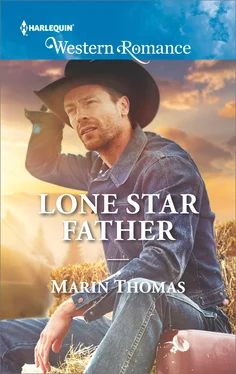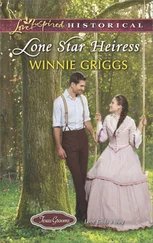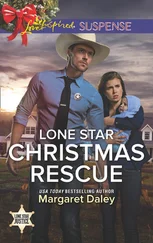He got out of the truck and strolled along the town’s main thoroughfare—Chuck Wagon Drive. A handful of brick buildings dated back to the late 1800s and early 1900s. The feed store had closed its doors and boarded over the windows before Reid had graduated from high school. He could barely make out the words For Sale that had been spray-painted on the side of the building decades ago.
His gaze swung across the street. The old Amoco filling station had been converted into a farmer’s market. A pickup was parked in the lot, its truck bed piled high with produce. Next to the station sat the Corner Market. When he was a kid, his grandfather would drop him and his brothers off at the store to buy candy.
He continued up the next block. The town looked depressed. Tired. The white bench that had always sat in front of the National Bank and Trust was missing and weeds grew through the cracks in the sidewalk near the door. On the other side of the street the shadows of the missing letters in the Bucket of Suds Coin-Operated Laundry sign remained visible against the gray cinder block.
From the few texts he’d exchanged with his brothers over the last year he knew his grandfather was trying to sabotage Amelia’s efforts to restore the town—he just didn’t know why. He agreed with the matriarch that the place needed a face-lift. If she wanted to dump her millions into Stampede, why should his grandfather care?
Reid put the brakes on and backpedaled to Millie’s Antiques & Resale—or what used to be the business. The old rocker that had sat in the display window for decades had been replaced with an industrial-style desk and a hanging light made from plumbing pipes and old-fashioned Edison light bulbs. Lydia’s Interior Design was etched into the window glass.
Gunner hadn’t told him that his wife had opened a business in town. The canary yellow door and red flowerpots overflowing with white and purple pansies was the lone bright spot among the dreary buildings on the block.
Reid reached the Saddle Up Saloon and drew in a steadying breath. Then another. And another. But no amount of oxygen would clear his thinking enough to fabricate a reasonable excuse for ignoring his family all these years.
He entered the building, pausing inside the door to allow his eyes to adjust to the dim interior. He looked toward the bar expecting to see his brothers parked on the stools, but the seats were empty.
Reid recognized the bartender dusting off liquor bottles. JB’s ponytail was longer and mostly gray now. He wore a beige T-shirt with a picture of a saddle on the back and the bar name printed in bold, black letters. When JB recognized Reid, the corner of his mouth lifted in greeting, then he tilted his head toward a table in the back corner where his siblings and his grandfather had gathered.
Reid approached the group and waited for an invite to join them. His grandfather nodded and Reid pulled out a chair and sat. JB placed a bottle of beer in front of Reid, then refilled his grandfather’s coffee cup before returning behind the bar.
He might as well get the tongue-lashing over with. Staring at his older brother he said, “Give me your best shot.”
Logan didn’t hesitate. “You’ve treated us like lepers for years. Don’t think you can waltz back into the family as if you never left.”
“I doubt you missed me that much,” Reid muttered.
Logan’s eyes widened.
“I’m no saint.” Gunner spoke up. “I’ve done my share of letting everyone down, but I’ve never deserted the family.” He pointed to their grandfather. “Gramps took care of us when our parents didn’t. He deserved better from you.”
Reid stared at his grandfather and braced himself.
“Did I do something or say something to make you believe you weren’t part of this family?”
Reid clenched his jaw and looked away from the sadness in the old man’s eyes. “I’d rather not talk about the past.” What good would it do to list his grievances? Donny Hardell was dead and his brothers had moved on. Why couldn’t he?
“Why’d you come home?” Gunner asked.
Tell them the truth. “I didn’t know where else to go for help.”
“You having some kind of early-life crisis, boy?” Gramps asked.
Reid pressed his lips together to keep from smiling. Despite his belief that his brothers could have done more to protect him from their father’s verbal abuse, he’d missed his grandfather’s cantankerous personality. “If you consider instant fatherhood an early-life crisis, then yes, I’m having one.”
Gunner looked at Logan, then back at Reid. “What do you mean, ‘instant fatherhood’?”
“I met Jessie for the first time six months ago when social services contacted me after her mother died.”
“The girl’s mother is dead?” Gramps asked.
“Stacy died in a workplace accident. My name was listed on Jessie’s birth certificate. A DNA test confirmed that I’m her father.”
Gramps sipped his coffee. “Where’s Jessie been all this time?”
“El Paso.” Reid rubbed his brow. He’d never learn why Stacy hadn’t reached out to him after she discovered she was pregnant. Her reasons had been cremated along with her body.
“I don’t remember any Stacy that we went to school with,” Logan said.
“She wasn’t from here.”
“Where did she live?” Gunner asked.
“I don’t know. The subject never came up at Jason Zelder’s house party where we had sex. Once.” Stacy had latched onto Reid when he’d walked through the front door and hadn’t let go until after they’d made out in his grandfather’s pickup in the driveway. “Stacy left the party with her friends and I never heard from her again.”
Gramps thumped his fist on the tabletop and they all jumped. “Why’d you wait six months to tell me about my great-granddaughter?”
“I wasn’t sure Jessie wanted anything to do with me.”
“What do you mean?” Gramps asked.
“The social worker suggested a six-month probation period for us to get to know each other. I quit my job in Albuquerque and moved to El Paso. At the end of six months Jessie agreed to leave her foster parents’ home and go with me.”
“So you got custody of her,” Gunner said.
“Temporary custody. The caseworker will reevaluate our situation in the next couple of months and either recommend that a judge give me permanent custody or place Jessie back into the foster-care system.” If he wanted to keep his daughter with him, Reid had to provide Jessie with a stable home life and a decent place to live. Right now they had neither of those things.
Logan crossed his arms over his chest. “I’m surprised you’d want anything to do with your daughter after the way you wrote off your family.”
Reid’s knuckles turned white against the beer bottle. “I think it’s the other way around.”
Their grandfather sliced his hand through the air, ending the tit for tat before it escalated. “How do you plan to show the social worker that Jessie belongs with us?”
He shrugged. “I don’t know the first thing about being a father.” And growing up, his father hadn’t been a good role model.
“I won’t be any help. As a first-time daddy I’m flying by the seat of my jeans.” Gunner nudged Logan’s arm. “You’ve been a father longer than I have.”
“Only by a few months,” Logan said. “I love the twins as if they were my own, but they’re a lot younger than Jessie. And they’re boys. I wouldn’t know what to do with a preteen daughter.”
“I got plenty of experience riding herd over teenage troublemakers,” Gramps said. “How long are you staying?”
“If I can find a job and a place for Jessie and I to live, then we’ll stay until the social worker makes her decision.”
Читать дальше












